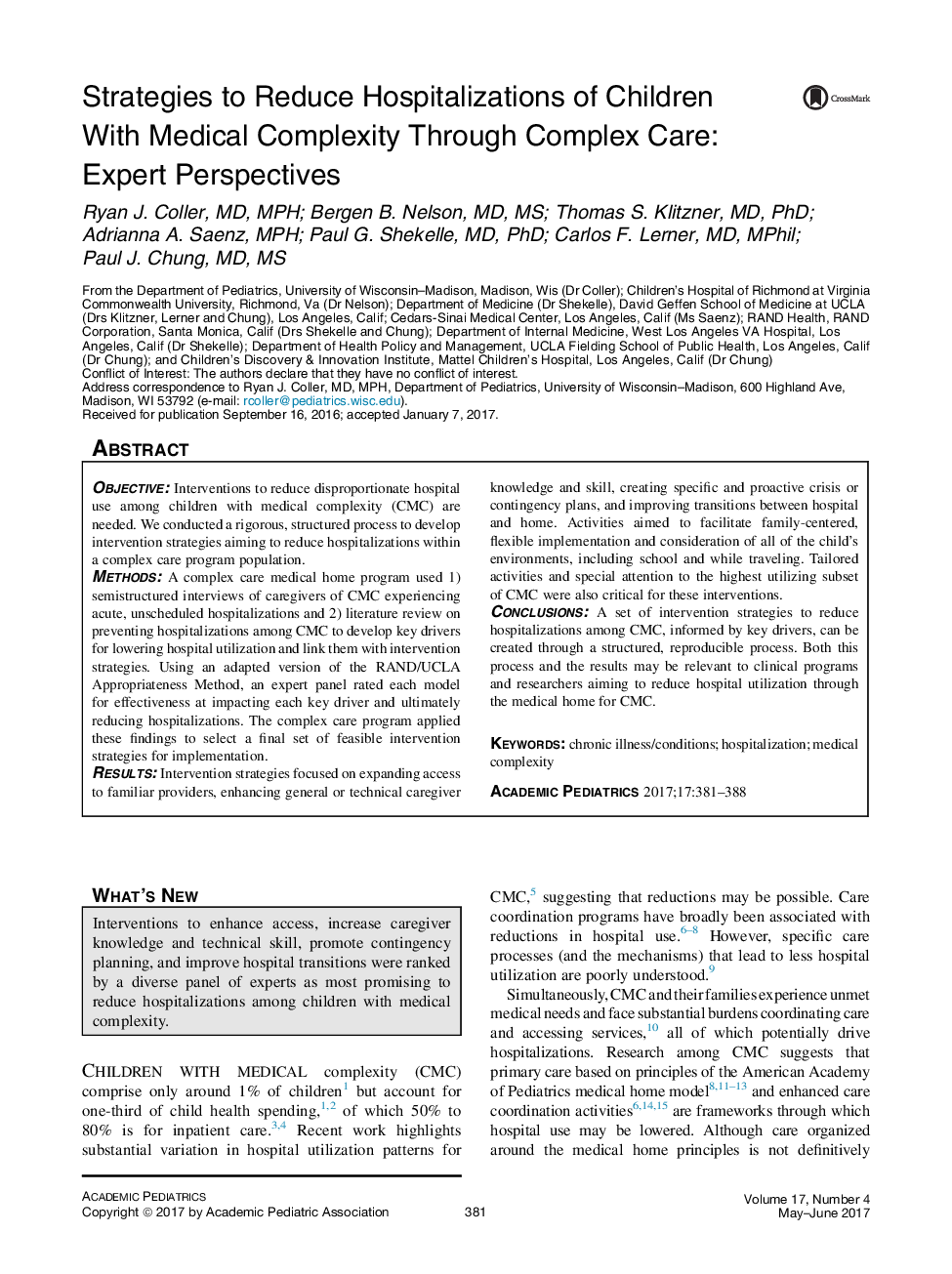| Article ID | Journal | Published Year | Pages | File Type |
|---|---|---|---|---|
| 5716870 | Academic Pediatrics | 2017 | 8 Pages |
ObjectiveInterventions to reduce disproportionate hospital use among children with medical complexity (CMC) are needed. We conducted a rigorous, structured process to develop intervention strategies aiming to reduce hospitalizations within a complex care program population.MethodsA complex care medical home program used 1) semistructured interviews of caregivers of CMC experiencing acute, unscheduled hospitalizations and 2) literature review on preventing hospitalizations among CMC to develop key drivers for lowering hospital utilization and link them with intervention strategies. Using an adapted version of the RAND/UCLA Appropriateness Method, an expert panel rated each model for effectiveness at impacting each key driver and ultimately reducing hospitalizations. The complex care program applied these findings to select a final set of feasible intervention strategies for implementation.ResultsIntervention strategies focused on expanding access to familiar providers, enhancing general or technical caregiver knowledge and skill, creating specific and proactive crisis or contingency plans, and improving transitions between hospital and home. Activities aimed to facilitate family-centered, flexible implementation and consideration of all of the child's environments, including school and while traveling. Tailored activities and special attention to the highest utilizing subset of CMC were also critical for these interventions.ConclusionsA set of intervention strategies to reduce hospitalizations among CMC, informed by key drivers, can be created through a structured, reproducible process. Both this process and the results may be relevant to clinical programs and researchers aiming to reduce hospital utilization through the medical home for CMC.
